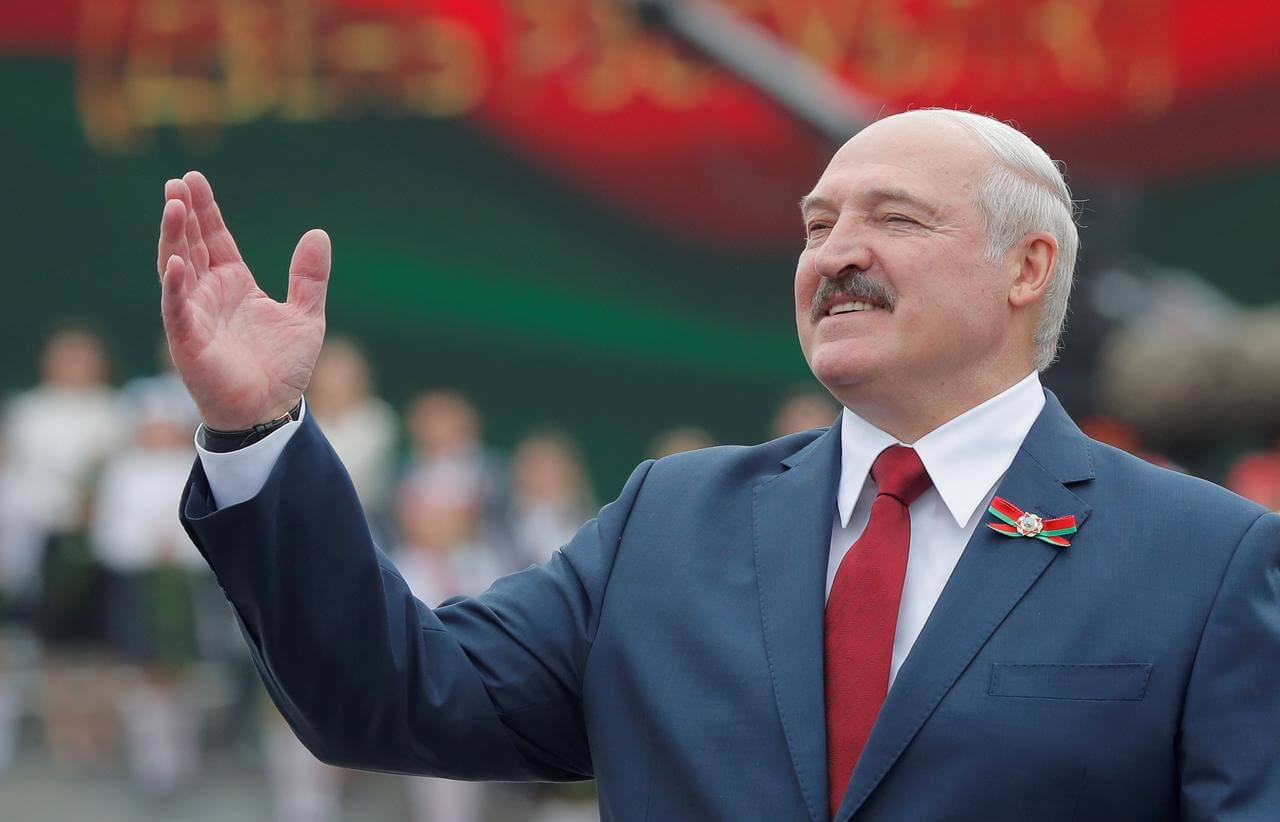Belarusian President Alexander Lukashenko has blatantly refused demands to step down, and has accused the opposition of trying to stage a coup, amid widespread protests over a disputed August 9 election, which suspiciously awarded him 80% of the vote. Instead, in an effort to preserve the loyalty of his law enforcement agencies in the face of swelling demonstrations and strikes, he signed a decree honoring over 300 police officers for their service.
Over the last 10 days, thousands have taken to the streets across the country, and the government security apparatus has sought to suppress the demonstrations using water cannons, rubber bullets, flash grenades, and teargas. Nearly 7,000 people have been detained, hundreds injured, and at least two have died. On Tuesday, Lukashenko showed no intention of engaging in dialogue with opposition leaders, who have formed a ‘Coordination Council’ to unite and streamline the actions of various anti-government activists and groups, labelling them “wild Nazis” and “former tricksters” attempting to seize power. Lukashenko threatened to take “adequate measures” in response to such actions. State-run Belta news agency also reported that Lukashenko has ordered the army to be “combat ready” at the border.
Lukashenko’s remarks came as world leaders engaged in diplomatic efforts to ease tensions in Belarus. Leaders from Germany, France and the European Union (EU) spoke via telephone with Russian President Vladimir Putin, urging him to promote dialogue in Belarus. French President Emmanuel Macron told Putin of the EU’s determination to “to play a constructive role alongside the Belarusian people so that violence against the population ceases immediately and that a political solution can be reached as soon as possible”. Meanwhile, German Chancellor Angela Merkel asked the Russian leader to convince the Belarusian leadership to stop using force against peaceful protesters, release detainees, and negotiate with Lukashenko’s critics. EU chief Charles Michel said on Twitter he had spoken to Putin and added that “only peaceful and truly inclusive dialogue can resolve the crisis in Belarus”.
The issue was also raised by Estonia and the United States (US) at a UN Security Council (UNSC) meeting on Tuesday, with Estonian Foreign Minister Urmas Reinsalu calling for the use of “preventative diplomacy at all levels” to avoid the escalation of the crisis. The Organization for Security and Cooperation in Europe (OSCE) has said that it would be willing to help facilitate a dialogue between parties in Belarus.
In another move indicating growing dissent at a high diplomatic level, the Belarusian ambassador to Slovakia, Igor Alexandrovich Leshchenya, who voiced support for the protesters, handed in his resignation on Tuesday. “As an ambassador, I’m appointed by the president, and it is expected that I follow the policies determined by him. The Foreign Ministry [of Belarus] believes my civic stance has gone beyond that,” Leshchenya told independent Belarusian news outlet Tut.by.
Lukashenko Remains Defiant, Refuses to Yield to “Nazis” Intent on Seizing Power
The dictator has accused the opposition of trying to stage a coup.
August 19, 2020

Belarusian President Alexander Lukashenko. SOURCE: REUTERS
